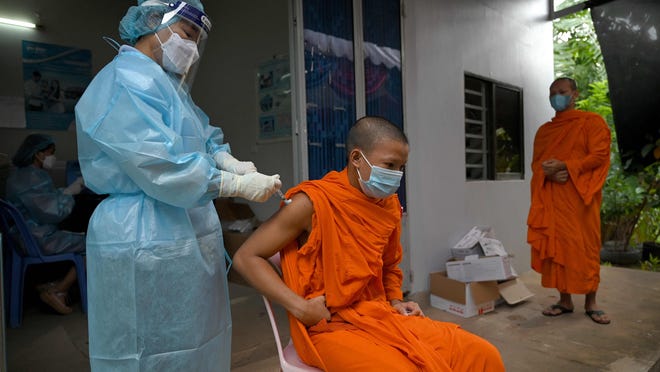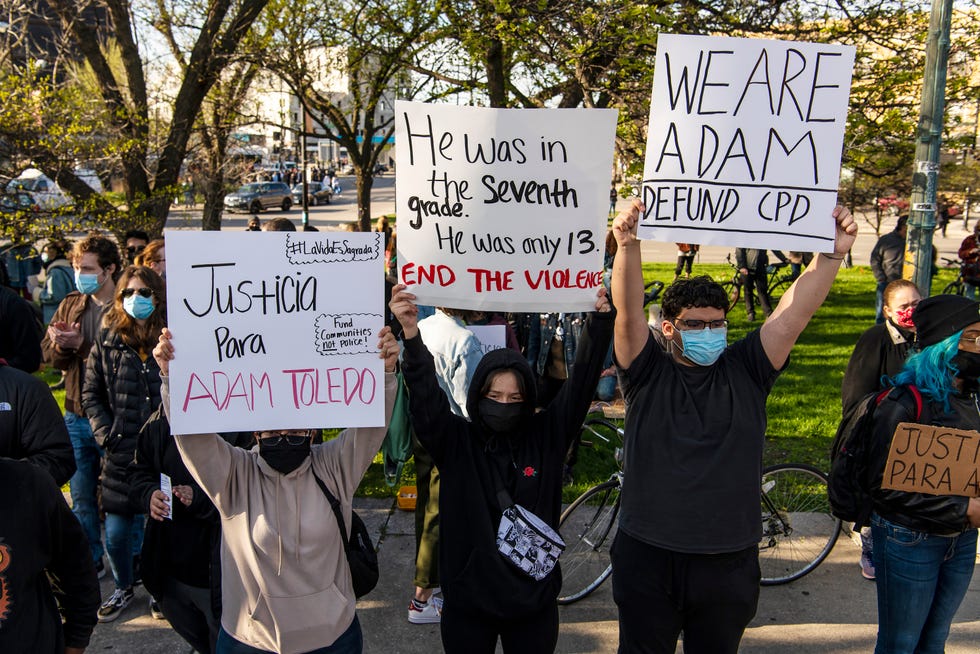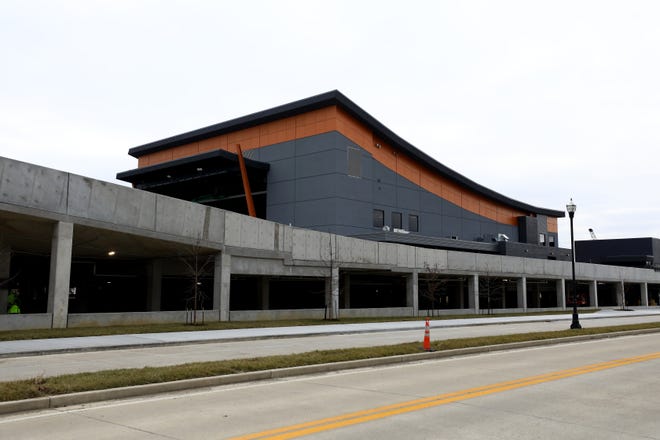
Louisiana hospitals in the path of Hurricane Ida were forced to evacuate dozens of patients after the storm tore off pieces of roofs, caused water leaks and partially flooded some areas.
Some were relying on emergency generators for electricity as millions across the state lost power after the storm hit the coast as a Category 4 hurricane. Hospitals in the state were already overwhelmed with COVID-19 patients due to the delta variant and low vaccination rates.
The additional hurdles, with storm wreckage and new patients, caused hospitals to transfer patients to other medical centers in the state, while others kept operating on generator power.
Louisiana Gov. John Bel Edwards said he expected the death toll to rise "considerably.'' Earlier, his office later said that over 2,200 evacuees were staying in 41 shelters, a number expected to rise as people were rescued or escaped from flooded homes.
Christina Stephens, Edwards' spokeswoman, said the state will work to move people to hotels quickly so they can keep their distance from one another. Even before Ida hit, Louisiana was battling a fourth coronavirus surge sparked by the highly contagious delta variant and relatively low vaccination rates across the state.
“This is a COVID nightmare,” she said. “We do anticipate that we could see some COVID spikes related to this.”
As of Monday evening, there were more than 2,600 COVID-19 patients hospitalized and another nearly 500 on ventilators, which require electricity to run. Those who are not vaccinated account for 91% of hospitalizations, according to the state's health department.
The storm and the surge of cases came as the U.S. marked 39 million cases of COVID-19 since the start of the pandemic.
Also in the news:
►City employees in Portland, Oregon, must be fully vaccinated against the coronavirus — or obtain a medical or religious exemption — by the middle of October or they will be fired.
►An Illinois judge on Monday reversed a decision to bar a divorced mother from seeing her 11-year-old son because she isn't vaccinated against COVID-19.
►The mayor of Honolulu says the city will soon require patrons of restaurants, bars, museums, theaters and other establishments to show proof of vaccination or a recent negative coronavirus test.
►Australia says it has reached a deal with Singapore to acquire 500,000 doses of the Pfizer coronavirus vaccine next week in return for delivering the same number of shots to Singapore in December.
►The four largest hospitals in Oklahoma City on Monday said they either have no intensive care bed space available or no space for COVID-19 patients.
📈Today's numbers: The U.S. has recorded more than 39 million confirmed COVID-19 cases and more than 638,000 deaths, according to Johns Hopkins University data. Global totals: More than 217 million cases and 4.5 million deaths. More than 173.8 million Americans — 52.4% of the population – have been fully vaccinated, according to the CDC.
📘 What we're reading: Parents of disabled students are suing over mask-mandate bans at schools due to their children being at higher risk of getting critically sick from COVID-19. Read more here.
Keep refreshing this page for the latest news. Want more? Sign up for USA TODAY's Coronavirus Watch newsletter to receive updates directly to your inbox and join our Facebook group.
CDC panel backs full licensing of Pfizer-BioNTech COVID-19 vaccine
The Pfizer-BioNTech COVID-19 vaccine remains extremely safe and worth using a federal advisory committee agreed Monday, recommending its use in people over 16.
The committee, known as the Advisory Committee on Immunization Practices (ACIP), reviewed data presented as part of the companies' request for a full license for the vaccine.
The vaccine had been authorized for emergency use; on Aug. 23, the Food and Drug Administration issued it a biologics license application – the technical term for full approval – in people 16 and up. Its use in adolescents 12-15 will continue to have emergency authorization until more data accumulates.
Emergency use was granted to speed the vaccine's availability during a time of crisis, based on two months' worth of data. Full approval is based on six months' worth.
On Monday, the ACIP publicly reviewed data for the first time that was part of the application process. Results, they said, were clear.
The Pfizer-BioNTech vaccine does carry a risk of two potentially dangerous side effects: swelling of the heart, called myocarditis, and allergic reactions. But those effects are mostly manageable, the data found, with allergic reactions largely caught during the 30-minute waiting period after vaccination and the vast majority of those with myocarditis leaving the hospital within a day or two. Read more here.
– Karen Weintraub
Education Department investigating states with bans on school mask mandates
As thousands of more schools return to full-time in-person instruction, President Joe Biden's administration is investigating five states that are banning districts from mandating masks, on the grounds that such policies violate the civil rights of children with disabilities and underlying health conditions.
State superintendents in Iowa, Oklahoma, South Carolina, Tennessee and Utah received letters Monday outlining how prohibiting indoor masking in schools prevents districts from implementing health and safety measures necessary to protect students, the Education Department said in a news release.
The banning of mask mandates may keep schools "from meeting their legal obligations not to discriminate based on disability and from providing an equal educational opportunity to students with disabilities who are at heightened risk of severe illness from COVID-19," the letters said, according to the department.
— Erin Richards
Source link








